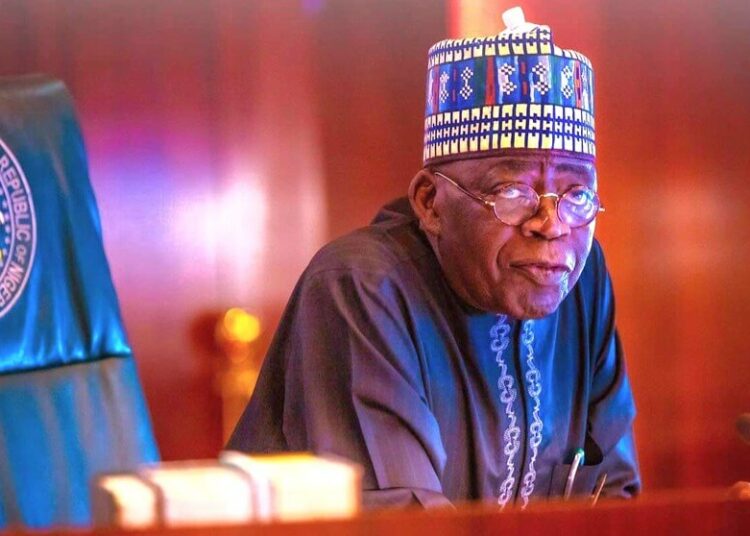President Bola Tinubu has stated that Nigerians were living a “fake good life” before the removal of the fuel subsidy, a decision he said was necessary to prevent the country from plunging into economic crisis.
Speaking during the 34th and 35th combined convocation ceremonies of the Federal University of Technology Akure (FUTA) in Ondo State, the President explained that his administration’s decision to remove the petrol subsidy and unify exchange rates was driven by the urgent need to salvage Nigeria’s future.
Represented by the Vice Chancellor of the University of Ilorin, Professor Wahab Egbewole, SAN, Tinubu noted that the subsidies, though intended to support the poor, ended up disproportionately benefiting the wealthy, leaving average Nigerians to bear the brunt of an unstable economy.
“As you are all aware, we took the baton of authority at a time when our economy was nose-diving as a result of heavy debts from fuel and dollar subsidies,” he said.
“The subsidies were meant to support the poor and make life better for all Nigerians. Unfortunately, the good life we thought we were living was a fake one that was capable of leading the country to a total collapse unless drastic efforts were urgently taken,” he said.
“The need to salvage the future of our children and bring the country back from the brink of collapse necessitated the strategic decisions to remove the fuel subsidy and also unify the exchange rates.”
Tinubu assured Nigerians that the policies implemented by his administration were already yielding results, with signs of economic recovery. He stated that the country’s macroeconomic indicators were improving, while the microeconomic framework was shifting from consumption-driven to a production-based economy.
“The present challenges call for a high degree of patriotism, and I can assure all Nigerians that there is light at the end of the tunnel. After rain comes sunshine. The brighter days are almost here,” Tinubu said.
He called on the graduands to contribute to rebuilding Nigeria’s economy, emphasising the importance of collective effort in restoring the country’s glory.
The President expressed concern over the increasing emigration of Nigerian youths in search of greener pastures, a trend he said has led to brain drain across critical sectors of the economy.
“Our intellectuals and experts, on whom the nation has massively invested huge resources to train, are migrating overseas in large numbers at a time their services are most required at home,” he lamented.
“It is heart-rending, and the syndrome is not the solution to our problems. We are not Nigerians by accident, and I believe that the Almighty God who made us Nigerians has given us the required wisdom to turn things around for our betterment.”
In her remarks, the Vice Chancellor of FUTA, Professor Adenike Oladiji, announced that 6,405 students graduated across nine schools of study in the combined 2022/2023 and 2023/2024 academic sessions.
She disclosed that 519 students earned First Class honours, while 3,408 graduated with Second Class Upper degrees. Additionally, 2,139 earned Second Class Lower degrees, and 339 were in the Third Class category.
“Our mandate is to provide adequate learning, teaching, and impactful research for societal development,” Oladiji said.
“The institution has recorded landmark achievements across various fields, contributing to the advancement of human endeavors,” she concluded.











